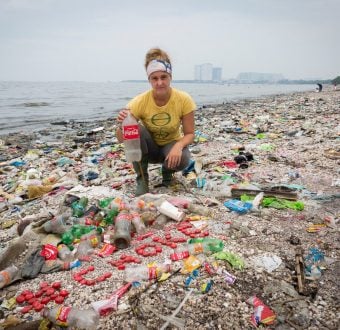“We congratulate the Committee for rejecting the most crippling amendments offered by Republican members of the Committee on behalf of the chemical industry,” said Rick Hind, Greenpeace Legislative Director. “H.R. 2868 already takes into account many industry concerns about flexibility, feasibility and cost. Unfortunately, four amendments were adopted that will either delay or derail the most effective security measures at high risk chemical plants. If enacted, these loopholes could allow the highest risk plants to forgo the use of safer chemical processes, leaving millions at risk. Congress has a duty to close these loopholes before it is enacted.”
In a Senate floor statement on this legislation in 2006, President Obama said, “We cannot allow chemical industry lobbyists to dictate the terms of this debate. We cannot allow our security to be hijacked by corporate interests.”
All Republican members of the Committee voted against the final bill even after winning approval of four weakening amendments. The four weakening amendment were:
An amendment by Rep. Steve Austria (R-OH) could exempt the highest risk plants in the U.S. from implementing safer chemical processes if they met the definition of “a small business concern” established by the Small Business Administration (SBA). Rep. Jackson-Lee (D-TX) warned during the mark up that the SBA definition could apply to 40 percent of U.S. chemical facilities. A secondary amendment by Rep. Pascrell (D-NJ) delayed this exemption for up to one year by requiring the DHS to evaluate its impact(s) but the DHS is free to use the exemption after that evaluation.
An amendment by Rep. Charlie Dent (R-PA) will delay the use of safer chemical processes at any plant until the Department of Homeland Security (DHS) conducts an analysis of the costs of implementing safer chemical processes. Under H.R. 2868, each high-risk chemical facility is already required to perform such an analysis for their facility. This delays risk reduction measures and skews assessments away from the benefits of safer chemical processes which include reduced risk of death or injury, cost savings, reduced liability, additional jobs created, increased production capacity and profitability as a result of converting to safer chemical processes.
Another amendment by Rep. Dent (R-PA) would allow the highest risk chemical facilities to be exempt from implementing safer chemical processes if they can show that using safer chemical processes would reduce their operations or workforce. H.R. 2868 already requires facilities to assess whether their business would be impaired by implementing safer chemical processes. This shifts the balance in favor of economic factors over consideration of risk reduction, additional jobs created, increased production capacity and profitability as a result of converting to safer chemical processes.
An amendment by Rep. Dan Lungren (R-CA) would add a second appeals process to the 60-day review process already in H.R. 2868 which allows chemical facilities to challenge a DHS finding to implement safer chemical processes. Such hearings are already available under the Administrative Procedures Act (APA) to challenge unfair decisions. The Lungren amendment goes beyond those procedures, inviting even more
litigation and ultimately the delay of security measures that will save lives.
VVPR info: Contact: Jane Kochersperger, Media Officer, Greenpeace, (202) 680-3798 cell; Rick Hind, Legislative Director, Greenpeace, (202) 319-2445

